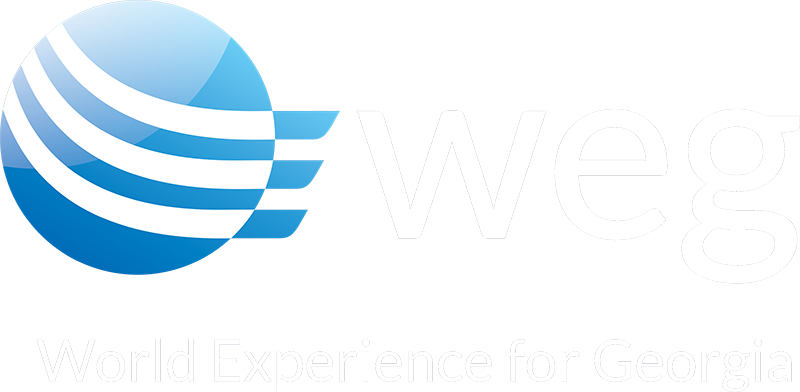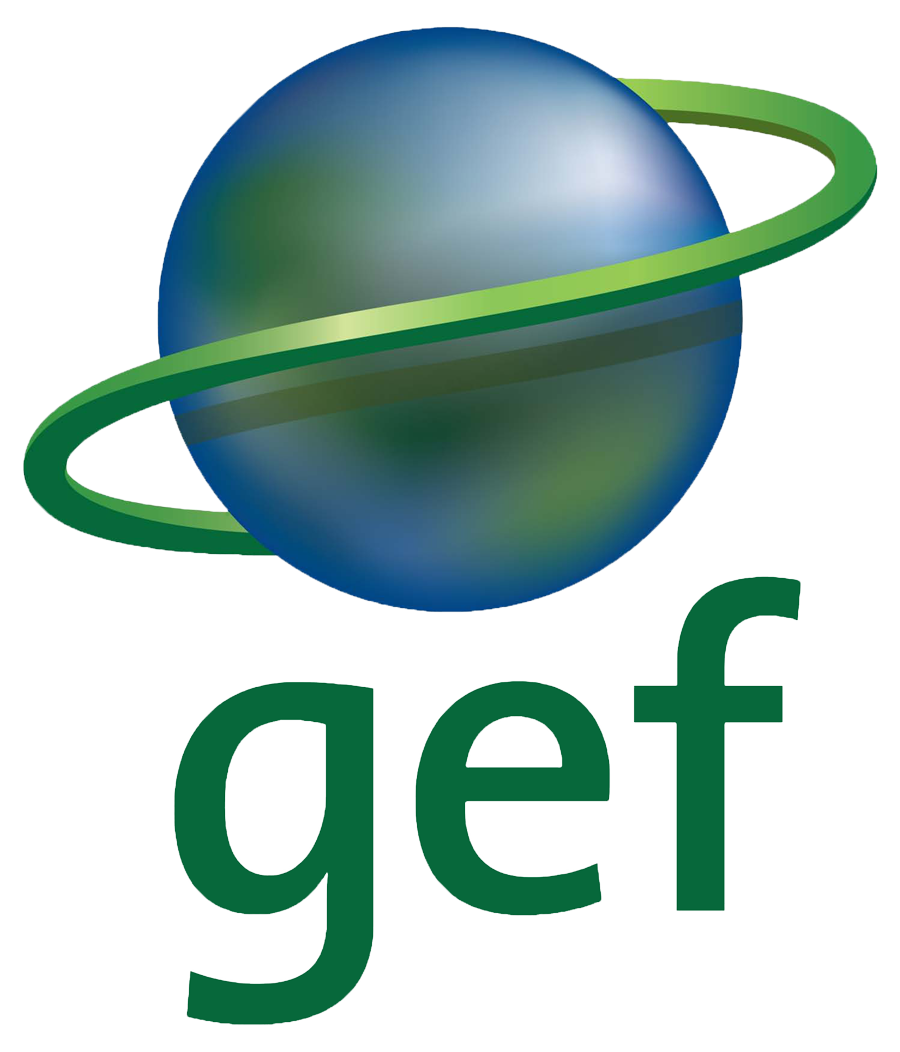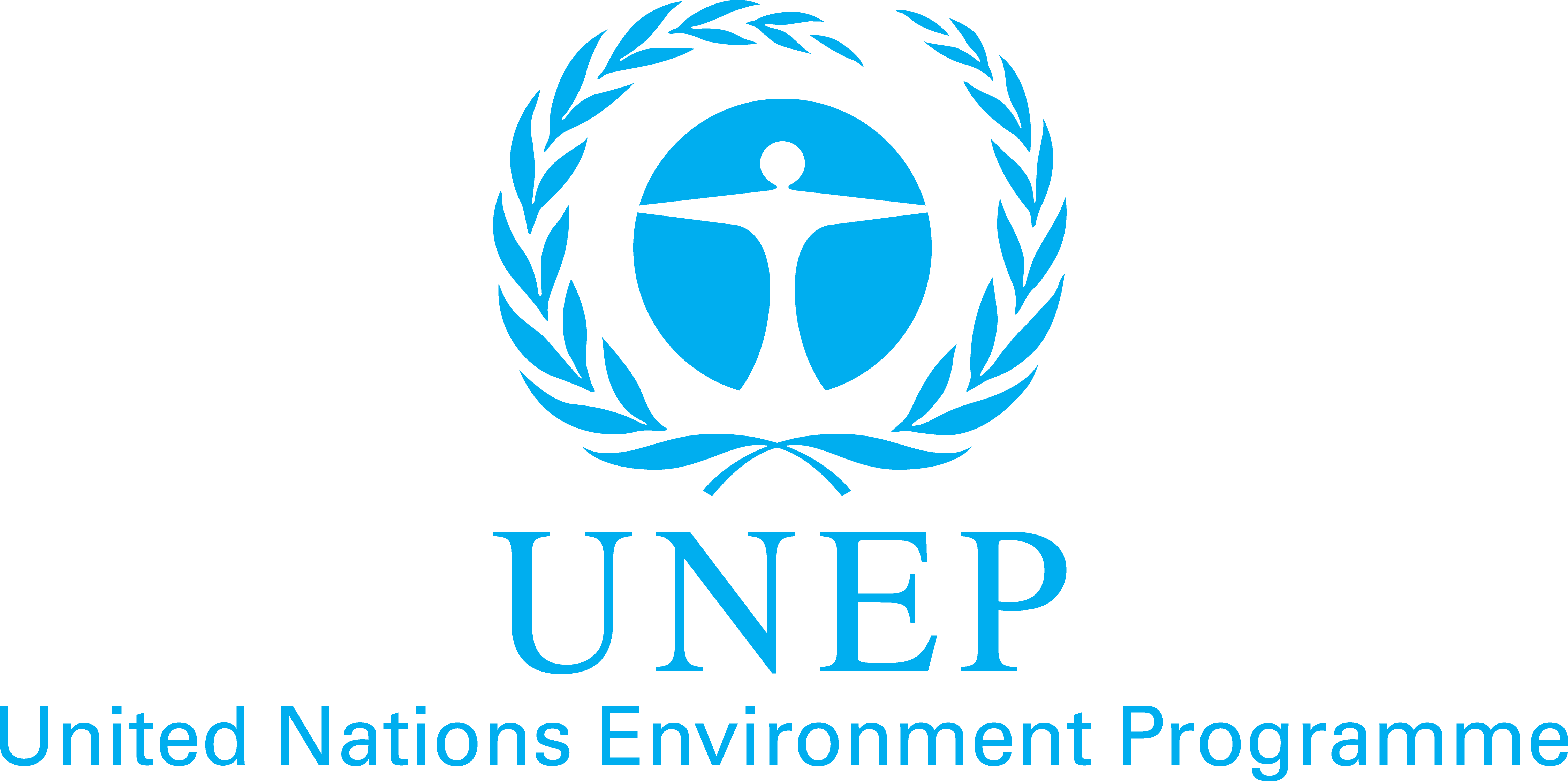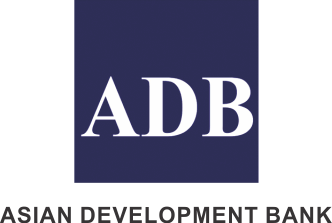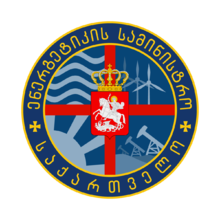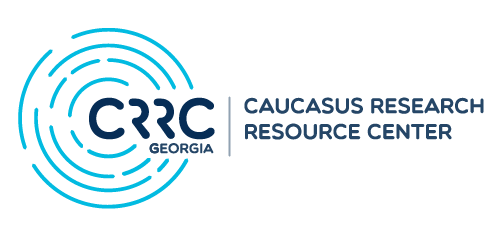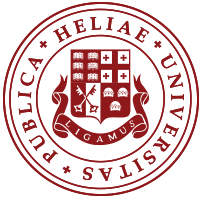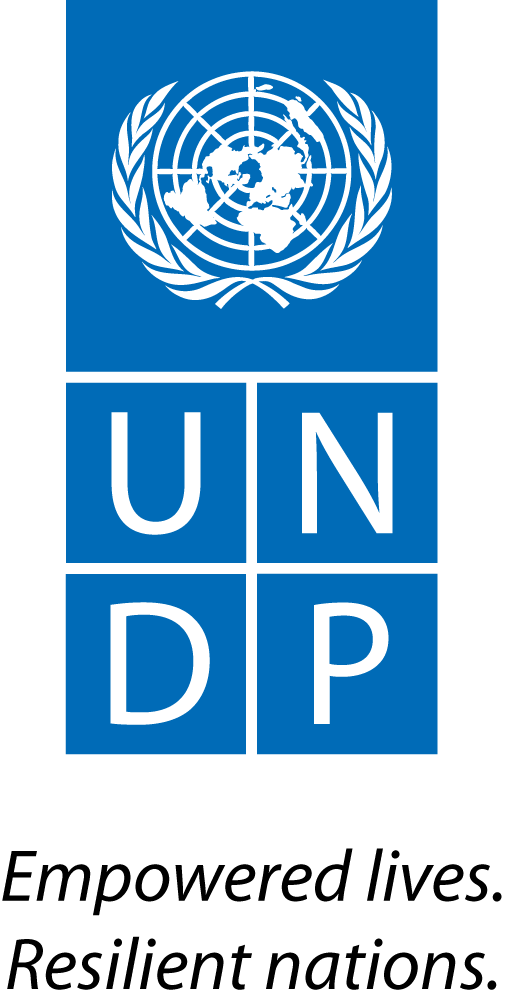Short Term Energy Security Assessment of Georgia by International Methodology
Achieving the higher level of energy security is the most important objective of energy policy in all countries. To successful implementat this task, energy policies should be based on quality research analyze the current state and to inform the policy decisions. A study conducted by WEG in collaboration with Ilia State University (, intends to address the gap in energy security research. Georgia’s short term energy security is examined through MOSES (Model of Short Term Energy Security) methodology of International Energy Agency (IEA). Although this approach does not cover all aspects and specificities of Georgian energy sector, nevertheless it allows important conclusions relevant to real energy policy.
MOSES model, Initially developed for (OECD) countries, assesses the level of short term energy security by evaluating both, energy supply risks and resilience to possible supply disruptions; The security ratings are assigned in a range from A (low risk, high resilience) to E (High risk, low resilience) by each type of primary and secondary energy considered. Such security profile for Georgia calculated from 2015 energy balance and some additional data is summarized in the table below:
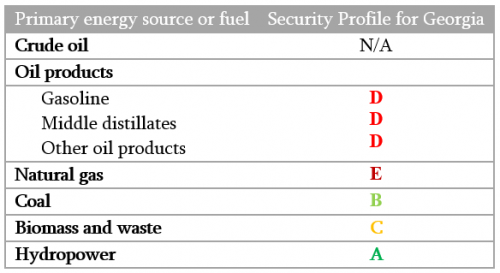
The results of assessment table shows moderately positive rankings in some energy types, however for oil products and natural gas giving a major contribution to country’s energy balance the rankings are unsatisfactory.
Though not in MOSES methodology, we compiled a summary rating by assigning numerical values from 1to 5 to A-E ratings, and by weighing these by share of respective energy type in country’s energy balance. Thus we arrive at Georgia’s overall energy security rating of 3.7, i.e. slightly better than D (4).
In addition the analysis indicates that:
- Unlike other countries, and in spite of big transit flows of crude oil, Georgia practically does not use this important energy resource for own energy supply and security, also losing the potential benefit of economic activity. It is recommended to revisit the feasibility of building a refining capacity for energy security and economic benefits.
- Resilience to disruption in oil products is low (D) compared to developed countries and requires increase in reserves. Increase of storage capacity and average stock levels shall be considered, especially in view of EU security of supply directives and regulations.
- The highest security risk is associated to natural gas supply (Lowest security category E). External supply risks need to be reduced through more diversification while resilience to disruptions requires construction of underground gas storage and reduction of gas consumption intensity. Indeed, gas consumption per unit of GDP in Georgia is 57- times higher than in developed EU countries, as a result of high share of residential consumption and low efficiency of industrial consumption.
- Due to unsustainable use, biomass is not a stable energy source. Illegal harvesting of firewood shall be gradually diminished through a combination of forestry reform, energy efficiency and provision of alternative fuels. This can be achieved through strong crosssectorial coordination and united government program.
- Liquid biofuels are not produced to any significant level. and require more attention especially in view of expected obligations under renewable energy directive.
- Hydropower has low annual variability compared to nonhydro-dominated countries and can be considered a relatively reliable energy source. However the analysis can be refined to a more detailed seasonal assessment.
The above circumstances have a significant effect on country’s short term energy security and require more attention. The lack of applied energy security studies has a negative effect on the quality of strategic planning and decision making. It is of paramount importance to continue the energy security studies and establish a link with real energy policy.
The results of the study and its discussion have been sent to the Ministry of Energy, GNERC and parliamentary Commission on Sectorial Economy and Economic Policy.
Read more
